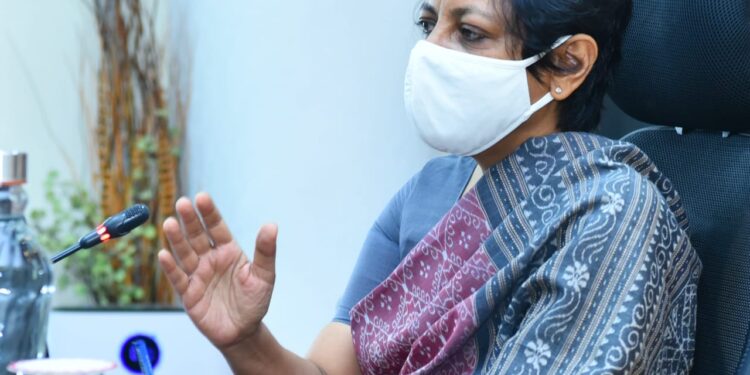• Replacing DDLGs, new officers asked to implement urban slum rehab, other urban development schemes on priority, mitigate public hardships
CHANDIGARH, JULY 21:
The newly created post of Additional Deputy Commissioner (Urban Development) in all the 23 districts will further improve efficiency in the functioning of the urban local bodies and strengthen coordination with the district administration to ensure holistic urban development in the state, the Chief Secretary, Ms Vini Mahajan, said here.
Chairing a maiden introductory meeting with the Additional Deputy Commissioners (Urban Development) in the presence of the Deputy Commissioners here, the Chief Secretary said 23 posts of Additional Deputy Commissioner (Urban Development) have been created, one each at all district headquarters in place of the Regional Deputy Directors Local Government (DDLGs), which have been scrapped. The ADCs (UD) will also be the ex-officio additional CEOs of the PWSSB.
Welcoming the newly appointed officers, Ms Mahajan directed the Deputy Commissioners to provide adequate office space and requisite staff, mainly consisting of MIS and IT experts, SWM, wastewater specialists, and assistant programme officer (Housing) and (NULM), to all the newly appointed ADCs in their respective districts.
The Chief Secretary asked all the new ADCs to closely monitor the execution of the urban slum rehabilitation projects under Basera, PUEIP-I, II, and III, AMRUT, Swachh Bharat Mission, Pradhan Mantri Awas Yojana (PMAY), PMSAVnidhi, and other urban development schemes to ensure their timely completion, quality control, and proper fund utilisation.
Detailing the various powers delegated to the ADCs (UD) under the Punjab Municipal Act, the Principal Secretary Local Government, Ajoy Kumar Sinha, apprised the Chief Secretary that all resolutions of Class-II and III municipal councils shall be dealt and approved by them whereas for Class-I municipal councils and all improvement trusts in the district, the resolutions shall be routed through them to the Director Local Government for approval. The improvement trusts located in Municipal Corporation cities will send their resolutions to Director Local Government directly, he added.
They shall head the project monitoring and reviewing committee to monitor the ongoing works, besides coordinating with the government and other departments to provide land for setting up MPS, STP, WTP, OHSR, and tube-wells. These officers shall also be responsible to resolve and coordinate grievances and demands of public and local elected representatives, he informed.
The Chief Secretary pointed out that since most of the services in the urban local bodies like collection of water and sewerage charges, property tax, issuance of licences, sanction of building plans, and public redressal grievances have been made online, the new ADCs need to make earnest efforts to monitor these services on a regular basis.
Stressing resolution of public grievances on a priority and day-to-day basis to the satisfaction of the complainants, Ms Mahajan directed the district officers to resolve the issues of waterlogging in the low-lying areas in the towns on priority and every effort should be made for early disposal of the accumulated rainwater to mitigate the public hardships.
Noting that the current Covid situation was satisfactory with the state’s daily positivity rate touching a new low of 0.3 per cent, the Chief Secretary asked the new ADCs to constantly supervise the health facilities available in the urban areas to ensure better services and check any surge in the Covid cases in future.








